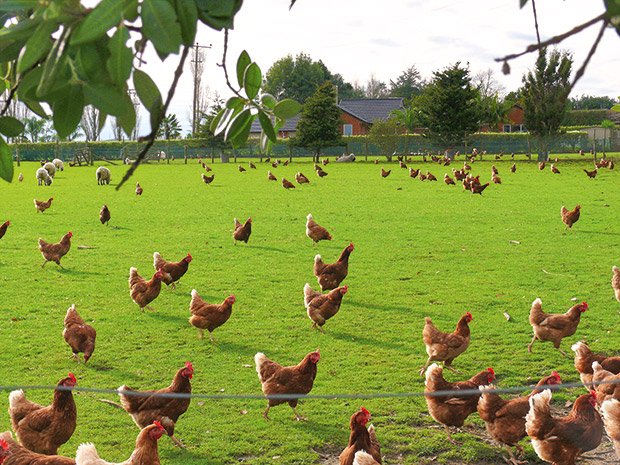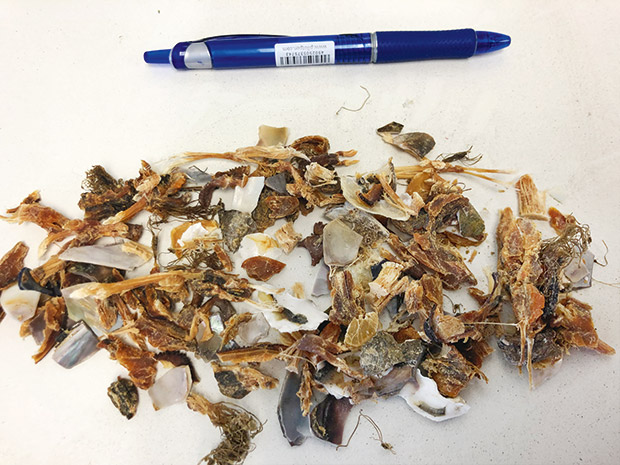How a mussel byproduct is being transformed into a healthy snack for hens

A natural waste product from the mussel industry is now a health supplement for happy hens.
Words: Nadene Hall Images: Rob Darby, FRENZ Eggs
Frenz Eggs founder Rob Darby used to get rid of leftover mussel burley from fishing trips by giving it to his hens. The birds loved it so much, they’d see his vehicle and come running to get the waste mussels, crushed-up shells, barnacles, crabs, and seaweed.
Rob had a lightbulb moment. He knew an enormous amount of waste shells from mussel farms were sent to landfill or dumped at sea. He wondered, could it be a healthy supplement for his laying hens?
Ten years later, Rob has a drying and crushing facility that processes a tonne of mussel waste a day, producing 300kg of dry feed. His plan is to be fully sustainable, power the operation using solar, and slowly upscale to 50 tonnes per day.

The supplement includes crushed, dried shells, barnacles, crabs, and seaweed.
The finished supplement is high in calcium, omega-3 fatty acids, and protein and is added at a rate of 6-8% of the diet, or around 80kg of dried shells per tonne of feed.
But does it make a difference? Initial testing carried out by scientists at Callaghan Innovation (a Government-owned research and development service) found increased levels of omega-3 fatty acids in the eggs of birds fed the supplement. Levels of omega-3 were:
•162mg per 100g in eggs from FRENZ hens receiving feed with dried mussel;
•110mg per 100g in FRENZ free-range eggs;
•77mg per 100g in standard free-range eggs.
MORE HERE
Love this story? Subscribe now!
 This article first appeared in NZ Lifestyle Block Magazine.
This article first appeared in NZ Lifestyle Block Magazine.
